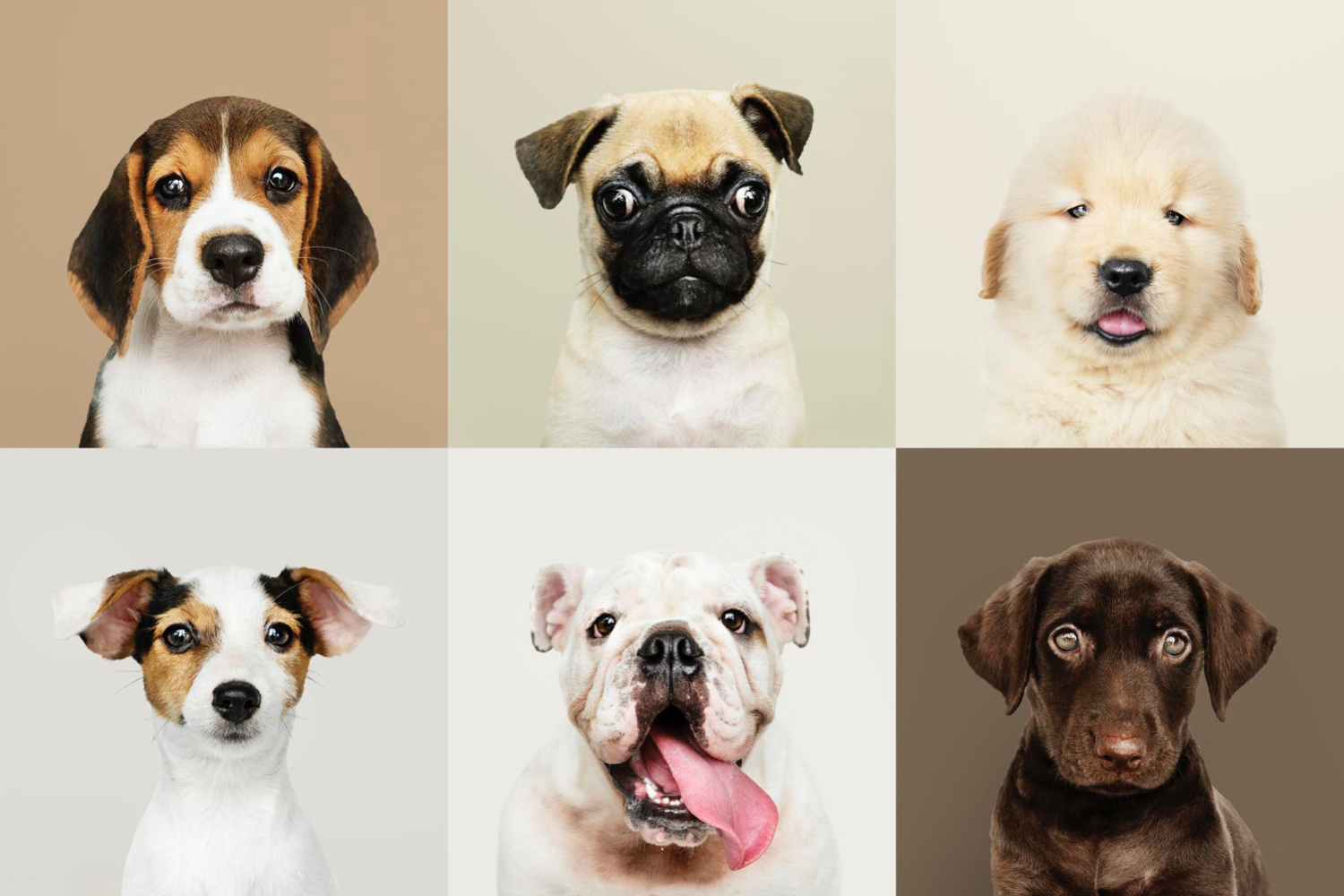What should we consider when choosing a dog breed? How to choose a dog that will suit us best? What dog characteristics are worth paying attention to have a light and happy life together?
The huge number of dog breeds can overwhelm anyone planning to buy a dog – especially the first one. Here we suggest what you should pay attention to in order not to make yourself or your dog unhappy. Because here – just as in relationships with people – the right match is the key to success. There is no such thing as an ideal breed, but there is an ideal breed for a given person.
Choosing a dog breed – which dog breed suits me?
1. Temperament of the dog – couch potato or athlete?
Most dogs need exercise, but the scale of the need for exercise varies radically. Some dogs need a leisurely walk 2-3 times a day and spend the rest of the day lying on a bed or sofa next to their owner. The second group are dogs, which have the soul of a sportsman and fiery temperament. Such dogs need to „run around” – they need a huge dose of exercise, games and attractions. At the same time, it’s worth checking what kind of activity they’re most interested in – because while a border collie will preferably spend time on agility training, a greyhound wants vast areas to run, and a boxer will simply encourage active play – just to focus attention on himself.
Calm dogs include the chow, mops, miniature spitz, chihuahua, English bulldog, shar pei, and Akita.
Dogs with a lively temperament include border collie, greyhound, boxer, Australian shepherd, Weimaraner, Dalmatian, and Siberian husky.
2. Time – how much time will you be able to devote to your dog?
Every dog needs attention, so everyone who plans to have a dog must set aside time for it – for walks, playing, and grooming. However, some breeds need more time than others – especially those that require careful grooming, e.g. regular combing of the coat. When planning a dog with a long coat, you should also set aside more time for… cleaning – dogs can shed huge amounts of hair.
Breeds that require grooming: Yorkshire terriers, chow chow, papillon, Maltese, poodle.
Breeds with minimal grooming requirements: French bulldog, beagle, Doberman, German shepherd
3. The size of the dog does matter!
There is no denying that the size of your dog does matter. Especially if you are looking for a dog for a flat. The size of a dog – and therefore its weight and strength – is also important if you are looking for a dog that can be walked by children or elderly people. The size of the dog may also affect how noisy the animal is – usually, the smaller breeds are noisier. Large dogs generally bark less – with exceptions of course.
Small dogs: Miniature Spitz, Chihuahua, Maltese, Pugs, Jack Russell Terrier
Medium dogs: Beagle, Boxer, Cocker Spaniel, English Bulldog, Hungarian Pointers
Large dogs: Bernese Mountain Dog, Labrador retriever, Weimaraner, German Shepherd
4. Open-mindedness towards other animals – the vicious dog is not for everyone
This is a key point for those who plan to have more than one pet – because, after all, a dog needs to fit in not just with its owner, but with the whole house. While usually in one household most dogs can get along with both cats and dogs, some dogs get along better and others that have problems with this. The same applies to relations on walks with completely strange dogs and cats. Before we buy a dog, we need to think about whether we care about its friendly nature or whether we can control a dog which may show unfriendly behaviour towards others.
Friendly breeds: Bernese Mountain Dog, beagle, border collie, cavalier King Charles spaniel, golden retriever
Breeds prone to fighting: American Staffordshire terrier, Welsh terrier, Canary dog, Caucasian sheepdog
5. The cost of ownership – an important aspect of choosing a dog
Although the last aspect does not directly relate to fitting in with the owner, it is also worth considering when choosing the right breed. Although love and friendship are priceless, there is no denying it – keeping a dog costs money! Especially a large dog, which we plan to feed with top-quality food. The difference in the cost of keeping a dog – apart from the amount of food – can be influenced by the need for grooming treatments, such as a dog groomer.
Dogs which are expensive to maintain: Dogue de Bordeaux, Polish Greyhound, Newfoundland, Irish Wolfhound, Podhale Sheepdog.
Dogs are relatively cheap in keeping: dachshund, whippet, mops, French bulldog.

